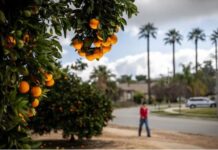The new Delta variant of COVID-19 first discovered in India and responsible for India’s outbreak is growing across the U.S. and Texas.
Last week, it made up 2% of cases in the CDC’s Southwest region, which includes Texas. Now it’s up to 10%.
Across the country, it makes up 6% of cases, double last week’s level of 3%. In the UK, which has seen COVID spread increase, it accounts for 60% of cases.
John Sims is the director of UNTHSC’s SaferCare Texas which is helping with vaccine outreach.
RELATED: COVID-19 variants given new names based on Greek alphabet
“I don’t think it’s a concern. I think it’s probably a certainty that’s going to come here, which emphasizes even more the importance of the vaccine,” Sims said.
While the Delta variant is more contagious and leads to more serious illness, vaccines are still effective against it. A British study found the Pfizer vaccines to be 88% effective in preventing symptomatic disease after two doses.
“I really hope that we have learned from this pandemic that we really need to be more proactive,” Sims said.
RELATED: India has 3rd highest COVID-19 death toll in world
Texas vaccinations have slowed, though, and 46% of eligible Texans are fully vaccinated, one of the lowest rates in the country. The U.S. is now unlikely at its current pace to meet President Biden’s goal of 70% of Americans vaccinated by July 4.
“I think that there is some fear among people getting the vaccine and that concerns me,” Sims said.
CDC Director Rochelle Walensky called the variant an opportunist.













